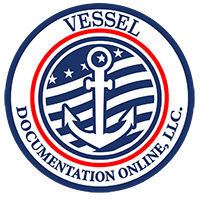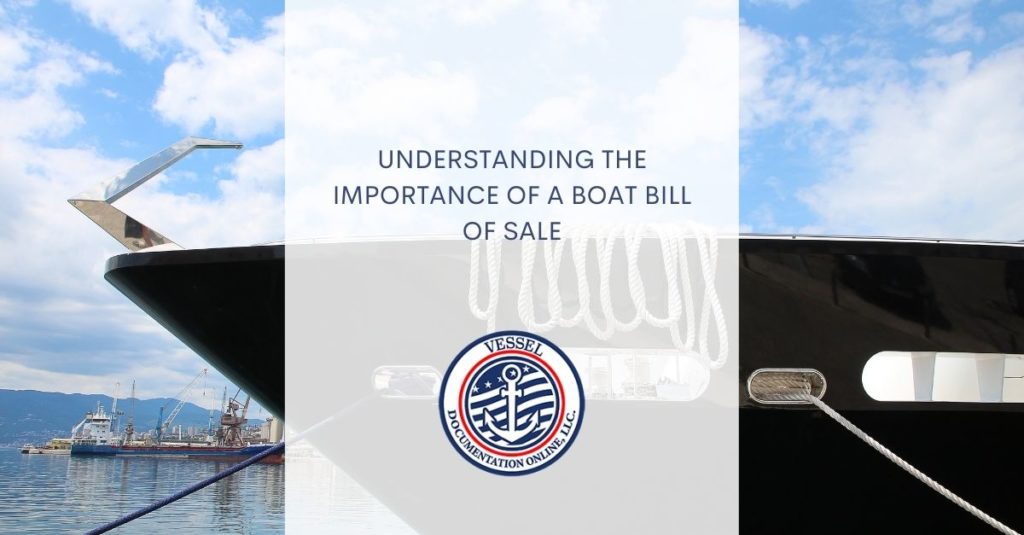In the process of selling your yacht, are you making sure that all of the necessary paperwork is in order? A boat bill of sale may be all that’s required to seal the deal.
There is a chance that is the case. Unless, of course, you possess a registered vessel. It isn’t a bill of sale if your boat is adequately recorded.
Indeed, you’ll see that there is no bill of sale on our site. This is because we only provide forms for boats that have been documented. We can assist you with creating a bill of sale for undocumented vessels.

What Exactly Is A Boat Bill Of Sale?
In legal terms, a bill of sale documents property transfer from one party to another. It’s similar to the receipt you’d receive from a shop, but it has far greater legal authority and implications.
Most of the time, they are utilized for substantial purchases such as appliances, automobiles, yachts, and equipment.
When a buyer needs proof of ownership, the bill of sale may be utilized, as Wikipedia.org points out, since it records the transfer of ownership.
Transferring the boat’s title, updating its registration, and adding insurance may all be accomplished via the use of the bill of sale.
What You Might Need To Know About This Bill Of Sale
The use of a boat bill of sale may be a fantastic approach to keep track of everything and to have some evidence that the transaction took place if you are doing so.
With a bill of sale, you’ll be able to transfer ownership of your yacht more quickly and effectively than without one.
Keeping track of the information provided by the other parties throughout and after the procedure is also made considerably more straightforward.
When Buying A Boat, What Information Should Be Included In The Purchase Contract?
- The bill of sale for a boat should include:
- The number assigned to the boat by the state.
- Buyer and seller’s names, addresses, and telephone numbers.
- Details about the vessel, such as length, builder and HIN type, and year of construction, are provided here.
Make a note of your vehicle identification number (VIN). It is noted individually if the boat comes with its trailer and vehicle identification number (VIN).
The price of the boat, outboard engine, and trailer should be included separately in the contract.
In order to ensure the agreement is complete, it is essential to include the serial numbers of any additional accessories or equipment supplied with the boat.
An “excluded” section on the purchase agreement may be used to indicate that certain products are not included in the transaction.
The purchase agreement may be signed before the transaction is completed, generally with a deposit, with conditions, such as getting finance or the boat passing a mechanical examination, marine survey, or sea trial.
Issues, such as the need for repairs, may be worked out and be included in a new contract, or the buyer might choose to return the deposit and have it returned to them.
It is much easier to prevent miscommunication between the buyer and seller when they have signed a formal boat purchase agreement.
How to Get Title for a Boat Using a Bill Of Sale
After completing the transaction, the buyer must file an application for legal title with the state department in charge of boat registration.
Check your state’s official website to find out where you need to register your boat. The documents and costs required by each state will vary, but in general, you will be able to submit your boat bill of sale as evidence of purchase to receive a state-issued title.
You may need to register the trailer separately, so be sure to look into the trailer registration requirements.
In What Ways May This Documentation Be Useful?
For starters, it acts as a record of the transaction, proving that it occurred. The second point is that it signifies that all parties involved in the transaction have consented to the vessel’s transfer of ownership in its “as is” state.
“This signifies that the new buyer has decided to accept the vessel in its current condition, with no plans to make any additional changes.
This may be quite crucial, especially if they have “buyer’s remorse” due to the condition of the vessel.
As stated previously, if you are selling your registered vessel, it may be the case that a bill of sale will suffice.
Unfortunately, not all states or jurisdictions will accept a simple bill of sale in place of the title, and you’ll need to ensure that the one you create will suffice.
And if you are selling your undeclared vessel, a properly executed bill of sale can be a great way to ensure that both parties are protected throughout the transaction.




